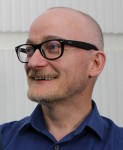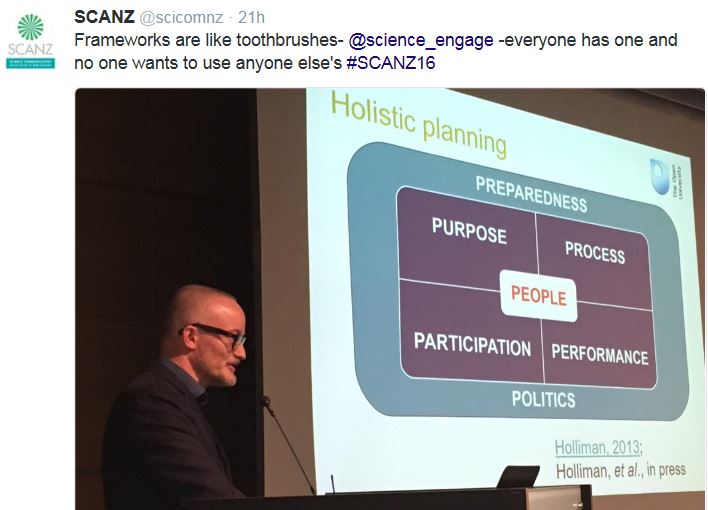It has been a very productive couple of weeks in New Zealand. Thanks to my wonderful host Nancy Longnecker (and family) I’ve had a chance to explore the local environment. New Zealand is clearly a very beautiful place, interwoven with many cultures.
I’ve had opportunities to meet with staff and students from the Centre for Science Communication during my stay in Dunedin, and more widely from the University of Otago as we’ve explored aspects of culture change in relation to engaged research.
We have discussed aspects of New Zealand’s National Science Challenges, at a time when these islands and their citizens have been facing the very immediate challenge of responding to a series of earthquakes.
Collectively, these challenges require us, as science communicators, to re-double our efforts to create a reflective culture of evidence-based practices as we connect scientists, citizens and other stakeholders in ways that are meaningful and relevant.
My visit has culminated in the start of the annual SCANZ Conference. Held for the first time in Dunedin, at the Otago Museum, the conference delegates were asked to explore how science and society are (and could be) connected.
I was delighted to be asked by the President of SCANZ, Fabien Medvecky, to open the conference and did so yesterday morning with a series of questions:
- Can making science public approaches provide effective spaces for connecting scientists and citizens?
- Is open, engaged scholarship a valid and aspirational career option?
- What baseline knowledge, skills and confidence does a citizen need to function in modern society?
- How do we best support those planning for engagement?
The abstract for the talk is included below. For a copy of the slides, select:
What has science communication ever done for us?
As science communicators we live in exciting and challenging times. While effective communication remains at the heart of good science, what we mean by this has evolved rapidly in recent years.
Digital technologies, profoundly social in use, have expanded (not replaced) the repertoires of science communicators and extended the potential for a greater number of stakeholders to participate.
On a similar timescale, policy makers have intervened to reshape the ways that universities relate to, and are informed by, wider society. Talk of engagement, openness, responsiveness and citizenship now permeate discussions about contemporary science communication.
These ongoing changes raise important issues for science communicators. What measures can we put in place to support those communicating, to recognise and reward excellence, and to show the continued relevance of our work as communication professionals?
In this keynote address, I will explore these issues in the context of a programme of organisational change designed to embed the practices of communication and engagement within the culture of research at the Open University, UK.



